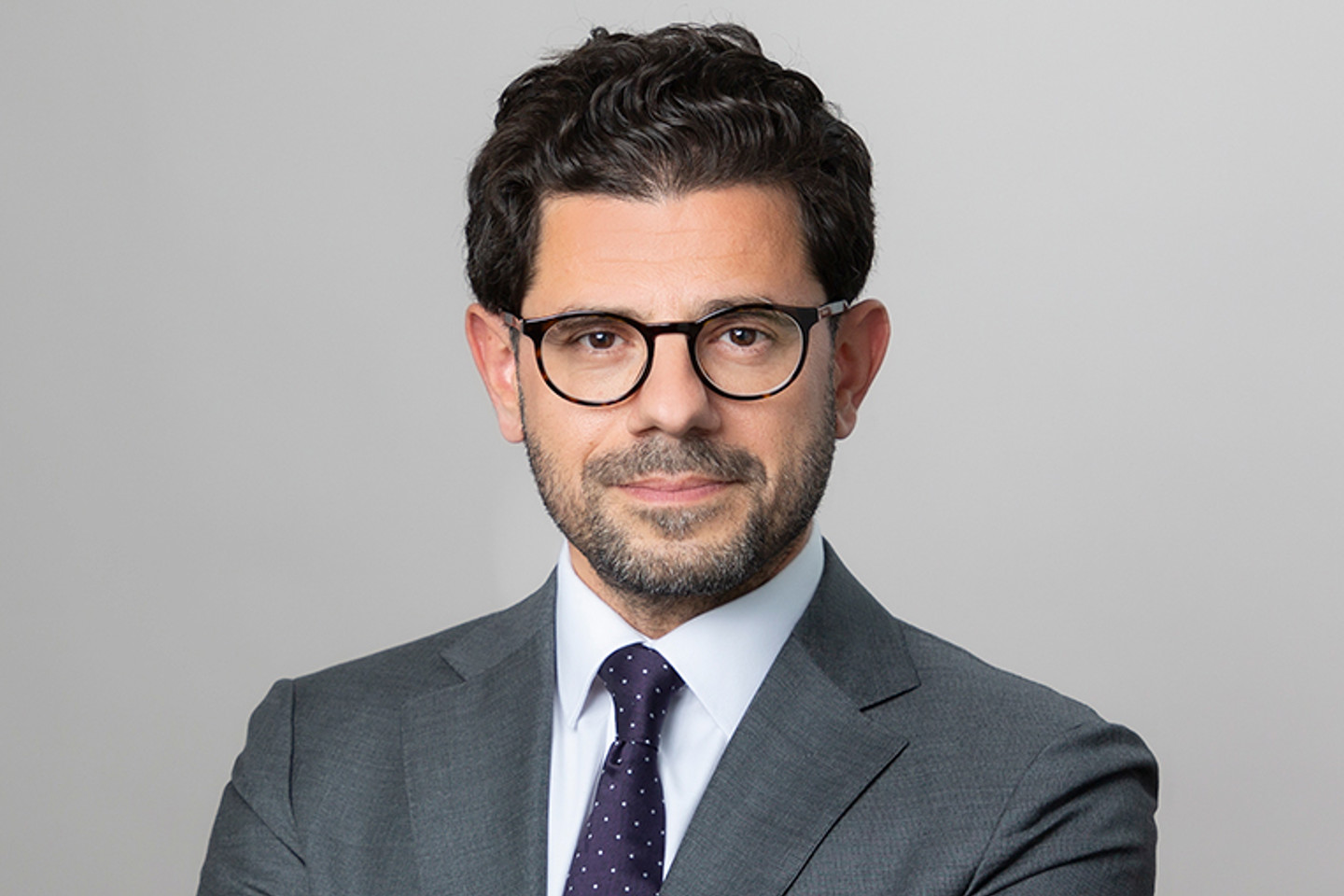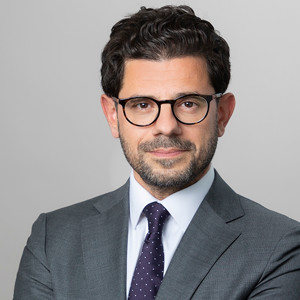
Jad Nader
Partner | Legal
Luxembourg Legal Services

Jad Nader
Partner
Luxembourg Legal Services
No Content Set
Exception:
Website.Models.ViewModels.Components.General.Banners.BannerComponentVm
The Channel Islands have worldwide appeal as leading domiciles of choice for private equity and real estate funds among both investors and managers. The Islands’ international funds industry has developed over more than thirty years and has a particular specialisation in institutional and professional investor funds with private equity, debt, infrastructure and real estate investment strategies. These asset classes share similar characteristics for structuring purposes and, for ease of reference, are considered together as “private equity” in this briefing.
Industry surveys confirm that approximately 52% of all private equity funds domiciled throughout the European time-zone are based in the Islands with a similar figure of 48% in respect of real estate funds. This survey also confirmed there has been no material change in industry preferences as to fund domiciles since 2008. The Islands’ position as domiciles of choice for such funds in the European time-zone is due to the following factors:
Similarly, Luxembourg is the leading domicile for asset holding vehicles for such investment funds investing into European portfolios.
Luxembourg’s market leading position in this sector has arisen partly from its role as a founder member of the EU benefiting fully from free movement of capital and freedom of establishment within the EU. It is also one of the largest global financial centres, benefiting from investment-focussed legislation, regulatory policies and tax laws and with a significant concentration of professional service providers to the financial services industry.
Luxembourg’s sophisticated financial services infrastructure, global brand recognition, full EU single market access and extensive double tax treaty network has lead to its development as a core jurisdiction for investment holding vehicles. This has resulted in the domiciling of several tens of thousands of such investment holding companies.
Luxembourg has demonstrated one of the most solid track records of stability in relation to the challenges arising in global markets since 2008 with a Triple A credit rating, low levels of sovereign debt and one of the highest per capita GDP globally. This economic and political stability, allied to the legal, regulatory and fiscal attributes of its financial services industry has resulted in Luxembourg’s position as a market leading domicile for European portfolio investment vehicles.
In addition to this portfolio investment specialisation, Luxembourg is also a leading fund domicile for those investors whose asset allocation requirements favour an EU domiciled fund. Please refer to www.ogier.com (publications, Luxembourg Legal) for briefings on these funds.
This market standard structure for European private equity delivers the following attributes for institutional, sophisticated and professional investors and managers:
The principal Channel Islands funds used in this area are:
Other investment vehicles are also available for use in appropriate circumstances for club deals, joint ventures and unregulated funds. Please refer to www.ogier.com (publications) for further information.
For the Jersey Expert Fund and Guernsey QIF all the key service providers to the fund in the Channel Islands, being the general partner, investment manager and administrator, are regulated both on authorisation to commence business and subject to ongoing regulatory supervision.
These funds themselves are also regulated with investor protection tailored to the characteristics of the particular fund and its eligible investor population which is restricted to institutional, professional and sophisticated investors with minimum investment requirements.
The Jersey Expert Fund requires that either the investment advisor/promoter is regulated to provide investment services in an OECD jurisdiction or is otherwise regulator-approved in Jersey. The equivalent requirement in Guernsey is that the promoter of the QIF (or registered fund) must meet certain criteria and provide satisfactory due diligence to the Guernsey licensed administrator who then provides certain warranties to the Guernsey regulator.
In addition regulator due diligence and approval is required of the directors of the Jersey Expert Fund’s Jersey general partner and investment manager, referring to qualifications, experience, track record, independence and corporate governance. Regulator due diligence and approval is also required for beneficial owners holding +10% stakes in such general partners and investment managers.
The equivalent Guernsey requirement is for the licensed administrator to due diligence the directors, shareholders and controllers holding a +15% stake in the Guernsey general partner and investment manager. The administrator then provides certain warranties to the Guernsey regulator.
In addition, although there is slight variation between the jurisdictions, Channel Islands regulated general partners and investment managers for such funds are generally required to comply with the following comprehensive ongoing supervisory requirements:
Ongoing supervisory oversight is applied through on-site inspections by regulators. There is also a requirement to have a regulated fund administrator with a substantial physical presence in the domicile and whose own continuing regulatory authorisation (and therefore own business) is dependent upon the proper administration of client funds. The fund is also subject to annual audit by an approved auditor, commonly being one “Big four” accountancy firms.
It is anticipated that these models will continue to adapt and evolve in line with global regulatory developments, including in relation to the EU AIFM directive, but without requiring wholesale change.
Managers and eligible investors preferring a more flexible approach may prefer exempted or partially exempted structures, such as the Jersey PPF or Guernsey registered fund.
The Jersey PPF’s regulatory environment is targeted at new managers raising closed-ended funds solely from professional, institutional and sophisticated investors (with a minimum investment requirement of £ 250,000) numbering less than 50. Greater structural flexibility is available and there is no regulator review of the promoter or investment manager.
The regulatory emphasis for the PPF is on investor disclosures with prescribed private placement memorandum requirements and investment warnings, certified by the fund’s regulated administrator. Ongoing oversight is provided by the fund’s qualifying auditor and regulated administrator.
Light-touch fund domiciliation in Guernsey is also available in the form of registered funds (which are not subject to regulatory authorisation). Registered funds may not be offered to the public in Guernsey. The fund’s regulated administrator conducts due diligence as to the fit and proper status of the promoter and provides confirmation to the regulator. Prescribed disclosures to investors and compliance with conflicts of interest rules are required, together with certain regulatory filings.
It is anticipated that the Jersey PPF and Guernsey registered fund will remain available for private placement to eligible investors in selected EU Member States until at least 2018. Availability to other eligible investors worldwide will continue, unaffected by the EU AIFMD directive.
The fund vehicles most commonly used are the Jersey and Guernsey limited partnership. Both are based on the English law model but benefit from significantly modernised legislation. As a result, investor limited liability is expressly safe-guarded by statutory safe harbours for engaged investors who play a significant role in the internal operation of the fund, including approving investment recommendations. Investors also benefit from reduced claw back risk in relation to distributions. These two factors are material advantages for investors over vehicles domiciled in other jurisdictions.
Investors also benefit from confidentiality, there is no public register of limited partners nor any requirement to file limited partnership agreements.
Channel Islands limited partnerships used as international investment funds are tax transparent and tax neutral vehicles.
Jersey and Guernsey limited partnerships can be constituted with separate legal personality, as is usual for carry vehicles. Such vehicles share the other advantages of Channel Islands limited partnerships generally and can be administered by the same team at the fund’s administrator with resulting cost savings and administrative efficiency.
The following key characteristics contribute to the attractiveness of Luxembourg portfolio holding companies to private equity funds investing EU situate assets:
Luxembourg’s companies law for unregulated investment holding companies benefits from a high degree of flexibility. Private investment companies (sociétés à responsabilité limitée) provide limited liability for shareholders and directors. Directors’ duties are to act as bon père de famille which, in a corporate investment context, can be seen as broadly similar to English law fiduciary duties, to act honestly and in good faith, in the best interests of the investment company, exercising the care, diligence and skill that a reasonably prudent business person would apply in relation to their own business.
Equity investment into Luxembourg private holding companies benefits from relative flexibility, provided a minimum paid-up share capital of €12,500 is maintained. Various share types may be issued including preference shares and tracking shares whose economic rights mirror specified pools of the company’s own assets.
In addition to equity subscription, portfolio holding companies are also commonly part-funded by the issuance of hybrid and/or convertible debt instruments, for example (convertible) preferred equity certificates or income sharing loans. Such instruments are legally characterised are debt for legal and accounting purposes, but also have certain equity-like features and are commonly subordinated to the senior and/or secured creditors of the issuing company. Provided such debt securities are not offered to the public or on a continuous basis, no regulatory consent is required for their issue.
The Luxembourg financial collateral law 2005 provides a robust, reliable and user-friendly legislative environment for secured bank lending to leverage the acquisition of portfolio assets. Aspects of this include the ability to take fully enforceable security over all the principal types of collateral commonly sought including shares, securities, intra-group receivables and bank accounts. In each case perfection of security is easily achieved without requiring registration on any public register. Similarly, security taken over financial collateral of this nature may be rapidly enforced (if required) by the secured creditor, acting by private action and with no requirement for any court order or other public intervention.
Security granted over such collateral is expressly exempted from the risk of transactions entered into during “hardening periods” being set aside on a subsequent insolvency of the obligor (in the absence of fraud). There is no prohibition on the grant of security which also constitutes financial assistance for the acquisition of the obligor’s own shares in relation to such private investment companies (S.à.r.l)
This combination of factors relevant to bank finance parties makes the Luxembourg private investment company a highly attractive vehicle through which to structure acquisition finance for portfolio investments.
The most appropriate (and commonly used) type of private investment holding vehicle for fiscal purposes is the SOPARFI (société de participation financière). The SOPARFI is an ordinary, unregulated investment company which invests in ownership interests (or “financial participations”), in other businesses or eligible assets. There are no investment diversification requirements and no eligible investor restrictions. The SOPARFI is a normal taxable company, which therefore qualifies as such under double tax treaties and the EU Parent- Subsidiary directive. However, although generally fully taxable, the typical asset type, long-term investment period and investment level for private equity investment enables the SOPARFI to operate on a substantially tax neutral basis in practice in this area.
In relation to EU situate portfolio assets, the tax neutrality arises from the transposition into Luxembourg law of the EU Parent-Subsidiary directive. This substantial neutrality is referred to as the “participation exemption”.
Under these provisions, income derived from a participating interest (such as dividends received by the Luxembourg SOPARFI from an EU portfolio company) is exempt from the SOPARFI’s Luxembourg taxable base, if the following conditions are met:
€1,200,000; and
The expenses related to the dividends (financing costs, in particular) are tax deductible to the extent only that they exceed the tax-exempt dividends.
Similarly, exemption is provided for capital gains of a SOPARFI on the disposal of shares in any EU situate portfolio company where as at the time of disposal, the Luxembourg SOPARFI has held for a continuous period of at least 12 months, either (a) shares equivalent to at least 10% of the portfolio company’s issued share capital, or (b) shares whose acquisition cost was at least €6 million.
Investment via Luxembourg in non-EU portfolios is similarly facilitated through Luxembourg’s extensive double tax treaty network with similar structuring and outcomes as for EU situate investments.
Standard market practice is to ensure that intra-group financing is structured with regard to internationally approved OECD principles in relation to thin capitalisation and transfer pricing. This results in a mix of funding by equity and by specialised debt investments.
Dividends paid by the Luxembourg SOPARFI on that equity would be subject to the standard Luxembourg withholding tax on dividends of 15% where such dividends are paid to a non-EU parent, in a jurisdiction without double tax treaty relief, such as a Channel Islands domiciled investment fund.
However, no withholding tax attaches to payments of interest on the intra-group debt financing in this context (such payments commonly not falling within the EU savings tax directive). This funding is structured on arm’s length terms including as to interest but enables, to the extent of that interest payable, the effective repatriation of value ultimately to investors on an efficient basis.
In relation to capital gains, on the ultimate sale of the underlying portfolio investment, it is possible to liquidate a single-asset holding SOPARFI (or to partially liquidate the appropriate share class of a multi-asset holding SOPARFI) and to return the resulting capital value to the parent investment fund as a liquidation distribution. Liquidation distributions are not subject to withholding tax.
This approach may deliver substantial tax neutrality (ie not incurring double taxation) in relation to such investments until the value generated is distributed to the investors, in whose hands it is subject to tax in accordance with the laws of their own, home jurisdictions, with substantial equivalence to direct investment by them.
This combination of robust legal frameworks, appropriate investor protection, the freedom for managers to conscientiously investment manage, certainty, limited liability for engaged investors and tax neutrality equivalent to direct investment has given rise to the market standard usage of this structure.
Ogier is the only professional services group able to advise on all Channel Islands and Luxembourg aspects of this structure, working closely with lead international firms in the key investor and investment advisor jurisdictions.
1 IMF report September 2009 re Jersey
2 Level and focus of regulation (whether rules-based or principles-based) depends on fund type.
3 IMF review of Jersey's regulatory and supervisory systems (September 2009).

Jad Nader
Partner | Legal
Luxembourg Legal Services

Jad Nader
Partner
Luxembourg Legal Services

Anne-Gaëlle Delabye
Partner | Legal
Luxembourg Legal Services

Anne-Gaëlle Delabye
Partner
Luxembourg Legal Services
Ogier is a professional services firm with the knowledge and expertise to handle the most demanding and complex transactions and provide expert, efficient and cost-effective services to all our clients. We regularly win awards for the quality of our client service, our work and our people.
This client briefing has been prepared for clients and professional associates of Ogier. The information and expressions of opinion which it contains are not intended to be a comprehensive study or to provide legal advice and should not be treated as a substitute for specific advice concerning individual situations.
Regulatory information can be found under Legal Notice
Sign up to receive updates and newsletters from us.
Sign up
No Content Set
Exception:
Website.Models.ViewModels.Blocks.SiteBlocks.CookiePolicySiteBlockVm